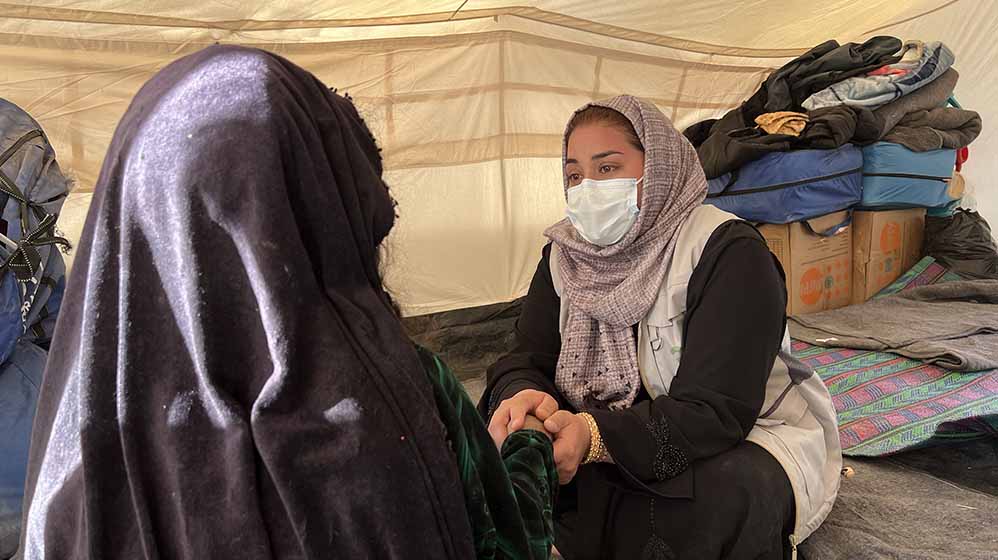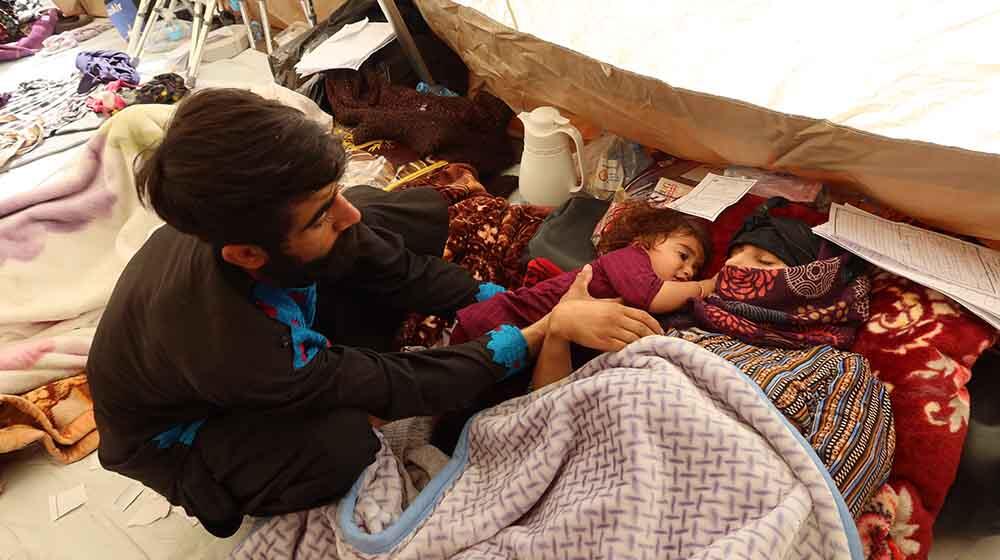HERAT, Afghanistan – “I thought that somebody was shaking me. And then the roof collapsed.”
This is what 25-year-old Shamaiel from Naieb Rafi village, Afghanistan, recalled to midwife Nafisa Hotak following a 6.3-magnitude earthquake that rocked Herat province on 7 October.
The quake left Shamaiel, who was nine months pregnant, trapped and bleeding under her own home. After being extricated and brought to the hospital by ambulance, midwives managed her delivery – but it was too late. “My baby was dead,” Shamaiel said.
In total, Shamaiel and her husband Hassan lost several family members in the disaster. Its victims have been overwhelmingly women and children, as it struck during the day; many women and children were home while men were out working.
Whole villages have been leveled. Thousands have been killed and displaced.
As of now, Shamaiel is recovering in a tent in the grounds of Herat Regional Hospital, along with other patients injured in the earthquake. In addition to experiencing a stillbirth, Shamaiel is coping with a fractured hip and enormous grief.
“I'm missing all the ones who were lost,” she said. "I cannot move."
On the move to meet needs
Almost immediately after the crisis hit, Ms. Nafisa Hotak was on her way to Herat as part of a mobile health team supported by UNFPA, the UN sexual and reproductive health agency.
As the midwife met with pregnant patients, she saw many were deep in shock. “Every mother was telling [me] about her children: ‘I have four children. Why are there only two now?’” she said.
“There were many pregnant women, but everyone had different stories. It was a very difficult moment.”
UNFPA estimates nearly 7,500 pregnant women have been affected by the quakes. To support them and others devastated by the disaster, the agency has deployed eight mobile health teams to Herat. Nearly 20,000 people were reached within ten days of the quake.
Needs on the ground, however, are still great. In some areas of Herat, every home was flattened by the tremors. Many of the displaced have taken temporary shelter in tents and abandoned buildings.
“A huge number of women have lost everything,” said UNFPA representative for Afghanistan Jaime Nadal, speaking from a transit centre turned temporary camp for the displaced in Gazergah, Herat. “UNFPA is here to make sure that they receive proper reproductive health care services.”

The deaths of loved ones in the earthquakes have taken a devastating toll on survivors. UNFPA-supported psychosocial counsellors have been deployed to help people on the ground cope with overwhelming loss.
“The availability of a psychosocial support counsellor is essential here because there are women who are injured and have lost family members. They need someone to listen to them and help them cope with their trauma,” said counsellor Faiza Zarie.
Women also face other challenges – heightened risks of preventable maternal death, gender-based violence and food insecurity, all as winter in Afghanistan approaches and temperatures plunge.
UNFPA is working to address the reproductive health needs of the more than 300,000 people estimated to have been affected by the earthquakes. It has issued a funding appeal for $11.6 million to continue delivering life-saving sexual and reproductive health supplies and services, and helping survivors in Herat cope with trauma.
"The first time I saw the situation in the camps, I felt the hopelessness. People were crying, they wanted their family members back,” counsellor Basira told UNFPA. “Psychosocial support is helping them come to terms with what has happened."


